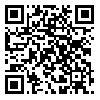Volume 1, Issue 1 (2021)
jpt 2021, 1(1): 47-59 |
Back to browse issues page
Download citation:
BibTeX | RIS | EndNote | Medlars | ProCite | Reference Manager | RefWorks
Send citation to:



BibTeX | RIS | EndNote | Medlars | ProCite | Reference Manager | RefWorks
Send citation to:
Ghadiri H, Vahabi S. Could it be that the Burden of Proof is not on Theist?. jpt 2021; 1 (1) :47-59
URL: http://jpt.modares.ac.ir/article-34-46908-en.html
URL: http://jpt.modares.ac.ir/article-34-46908-en.html
H. Ghadiri *1, S.K. Vahabi2
1- Department of Philosophy and Logic, Faculty of Humanities, Tarbiat Modares University, Tehran, Iran , hamed.ghadiri@modares.ac.ir
2- Department of Islamic Jurisprudence and Principles of Islamic Law, Faculty of Theology and Islamic Studies, University of Tehran Tehran, Iran
2- Department of Islamic Jurisprudence and Principles of Islamic Law, Faculty of Theology and Islamic Studies, University of Tehran Tehran, Iran
Abstract: (3546 Views)
In his classic paper on the philosophy of religion entitled ‘The Presumption of Atheism’, Antony Flew, relying on a traditional legal rule, extracts a methodological rule according to which the burden of proof in the problem of God’s existence is non-restrictedly on the Theist. Here we argue that from another legal rule in Islamic jurisprudence, we can extract another methodological rule that, in contrast to Flew’s rule, is context-dependent; so, applying this new rule, we can imagine that in some situations, the burden of proof would be on atheist. Since there are some historical evidence for the relationship or even identification of that traditional rule and this Islamic rule, it could be concluded that Flew’s rules, too, should be context-dependence. Hence, his non-restricted claim about the burden of proof in the problem of God’s existence will be rejected.
Article Type: Original Research |
Subject:
Philosophy of Religion (Analytical)
Received: 2020/10/18 | Accepted: 2020/11/24 | Published: 2021/01/2
Received: 2020/10/18 | Accepted: 2020/11/24 | Published: 2021/01/2
References
1. Al-Bayhaqiyy AIḤ (2003). The Great Traditions (Al-Sunan al-Kubrā). Volume 10. Beyroot: Dār al-Kutub al-ʿilmiyya. [Arabic] [Link]
2. Al-Ḥillī JḤ (1988). Paths of Islam in The Issues of Halal and Haram (Sharāʾiʿ al-Islām fi Masāʾil al-Ḥalāl wa al-Ḥarām). Volume 4. Qom: Ismāʿīlīyān. [Arabic] [Link]
3. Al-Ḥusaynī al-Ḥāʾirī SK (1994). Judiciary in Islamic Jurisprudence (Al-Qaḍāʾ fi al-Fiqh al-Islāmī). Qom: Majmaʿ al-Fikr al-Islāmī. [Arabic] [Link]
4. Al-Ḥusaynī al-Marāghī MAF (1996). The Titles (Al-ʿAnawīn). Volume 2. Qom: Daftar-i Intishārāt-i Islāmī. [Arabic] [Link]
5. Al-Kulaynī MY (1987). Al-Kāfī. Volume 7. Tehran: Dār al-Kutub al-Īslāmiyya. [Arabic] [Link]
6. Al-Mūsawī al-Khūʾī AQ (2001). The Foundations of Al-Minhaj's Complement (Mabānī Takmilat al-Minhāj). Volume 1. Baqdad: Jami' al-Baqdad. [Arabic] [Link]
7. Al-Rāfiʿī ʿAKM (1996). The Great Commentary (Al-ʿAzīz Sharḥ al-Wajīz al-Marūf bi-l-Sharḥ al-kabīr al-ʿilmiyya). Volume 13. Beyroot: Dār al-Kutub al-ʿilmiyya. [Arabic] [Link]
8. Al-Sanhūrī ʿAR (1968). The Medium on Commenting on The New Civil Law (Al-Wasīṭ fī Sharḥ al-Qānūn al-Madanī al-Jadīd). Volume 2. Beyroot: Dār al-Nihḍa al-ʿArabiyya. [Arabic] [Link]
9. Al-Tirmidhī MʿĪ (1998). Al-Tirmidhī 's Traditions (Sunan al-Tirmidhī). Volume 3. Unknown City: Dār al-Gharb al-Islāmī. [Arabic] [Link]
10. Āshtiyānī MḤ (2004). The Book of Judiciary (Kitāb al-Qaḍāʾ). Volume 2. Unknown City: Zuhayr. [Arabic] [Link]
11. Bahrami Ahmadi Ḥ (2011). Jurisprudential rules (Al-Qawāʿid al-Fiqhiyyah). Volume 1. Tehran: Imam Sadiq University Press. [Persian] [Link]
12. Bujnurdi SMḤ (1998). Jurisprudential rules (Al-Qawāʿid al-Fiqhiyyah). Volume 3. Qom: Al-Hādī. [Arabic] [Link]
13. Burgess-Jackson K (2018). Rethinking the presumption of atheism. International Journal for Philosophy of Religion. 84:93-111. [Link]
14. Flew A (1972). The presumption of atheism. Canadian Journal of Philosophy. 2(1):29-46. [Link]
15. Ibn Bābowyah MA (1992). The Book for Who a Jurisprudent Is Not in His Presence (Man Lā Yahḍuruhū al-Faqīh). Volume 2. Qom: Daftar-i Intishārāt-i Islāmī. [Arabic] [Link]
16. Khomeini SR (2013). Edition of al-Wasīla (Taḥrīr al-Wasīla). Volume 2. Tehran: the Institute for Compilation and Publication of Imam Khomeini's Works. [Arabic] []
17. Moḥaqeq Damad SM (1986). Jurisprudential rules (Al-Qawāʿid al-Fiqhiyyah). Volume 3. Tehran: Markaz-i Nashr-i ʿOlūm-i Islāmī. [Persian] []
18. Najmabadi A (2000). The Book of Judiciary (Kitāb al-Qaḍāʾ). Qom: Muʾassisih-i Maʿārif-i Islāmī. [Arabic] [Link]
19. Rashti Ḥ (1981). The Book of Judiciary (Kitāb al-Qaḍāʾ). Volume 1. Qom: Dār al-Qurʾan al-Karīm. [Arabic] [Link]
20. Riyāḍ A (2015). The Authority of Confidence (Ḥujjiyyat al-Iṭmiʾnān). Dirāsāt ʿilmiyya. 7:85-149. [Arabic] [Link]
21. Shalkowski SA (1989). Atheological apologetics. American Philosophical Quarterly. 26(1):1-17. [Link]
22. Subḥānī Tabrīzī J (1997). The System of Judiciary and Testifying in The Noble Islamic Law (Niẓām al-Qaḍāʾ wa-l-Shahāda fi al-Sharīʿa al-Īslāmiyya al-Gharrāʾ). Volume 2. Qom: Muʾassisih-i Imām Ṣadiq. [Arabic] [Link]
23. Taylor C (2007). A secular age. Cambridge: Harvard University Press. [Link] [DOI:10.2307/j.ctvxrpz54]
Send email to the article author
| Rights and permissions | |
 |
This work is licensed under a Creative Commons Attribution-NonCommercial 4.0 International License. |







